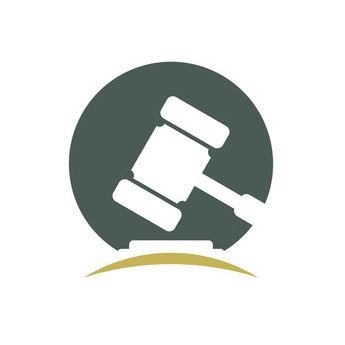Best Constitutional Law Lawyers in Guatemala
Share your needs with us, get contacted by law firms.
Free. Takes 2 min.
Or refine your search by selecting a city:
List of the best lawyers in Guatemala
About Constitutional Law in Guatemala
Constitutional Law in Guatemala is governed by the Political Constitution of the Republic of Guatemala, adopted in 1985 and reformed in 1993. It is the supreme law of the land, establishing the structure of the government and defining the rights and duties of its citizens. The Constitution outlines the separation of powers among the executive, legislative, and judicial branches, and it provides the framework for the protection of fundamental human rights, the rule of law, and democratic governance. Issues such as citizenship, national sovereignty, and the amendment process of the Constitution are also addressed within this legal instrument.
Why You May Need a Lawyer
Legal guidance in Constitutional Law may be necessary for individuals or entities confronting various situations. Some common scenarios include:
- Challenging laws or government actions that may be unconstitutional.
- Defending human rights violations, such as freedom of speech or unlawful detention.
- Navigating legal disputes involving electoral processes or political rights.
- Interpreting constitutional amendments or provisions for civic education or policy-making purposes.
- Seeking justice for discrimination or unequal treatment under the law.
Local Laws Overview
The key aspects of local laws relevant to Constitutional Law in Guatemala revolve around human rights protection, electoral processes, and indigenous rights. Important principles include the upholding of civil liberties, such as the right to due process and personal security. The constitutional court is the highest authority for constitutional interpretation, responsible for resolving disputes concerning the constitutionality of laws and state actions. Additionally, Guatemala's Constitution solidly recognizes the rights and identities of indigenous peoples, promoting their cultural and social integration.
Frequently Asked Questions
What is the primary function of the Guatemalan Constitutional Court?
The Constitutional Court serves as the guardian of the Constitution, ensuring laws and government actions comply with constitutional provisions.
How can I challenge an unconstitutional law in Guatemala?
An individual or entity can file a constitutional challenge or "acción de inconstitucionalidad" before the Constitutional Court.
What rights are protected under the Guatemalan Constitution?
Rights protected include freedom of speech, right to due process, equality before the law, and protection from discrimination.
Can the Guatemalan Constitution be amended?
Yes, but amendments require a complex process involving legislative approval and a national referendum.
Who is responsible for ensuring human rights in Guatemala?
The Procurador de los Derechos Humanos (Human Rights Ombudsman) oversees the protection and promotion of human rights.
How does the Constitution protect indigenous rights in Guatemala?
It acknowledges indigenous cultures, languages, and traditions, promoting representation and participation in national development.
What is an "amparo" in Guatemalan law?
An "amparo" is a legal remedy for protecting constitutional rights against unlawful acts by authorities or individuals.
How is freedom of the press protected in Guatemala?
The Constitution guarantees freedom of the press, though it may be subject to limitations to protect other constitutional rights.
What role does the Attorney General (Ministerio Público) play in constitutional issues?
The Attorney General prosecutes crimes and supports justice processes, ensuring constitutional compliance in legal proceedings.
Does the Constitution address environmental rights?
Yes, it recognizes the right to a healthy environment and mandates the state to protect and preserve natural resources.
Additional Resources
- Constitutional Court of Guatemala for jurisprudence and legal precedents.
- Gobierno de Guatemala for information and updates on constitutional matters.
- Asociación de Investigación y Estudios Sociales (ASIES) for comprehensive reports on political and social issues.
- Human Rights Ombudsman (PDH) for guidance on human rights protection.
Next Steps
If you need legal assistance in Constitutional Law, consider the following steps:
1. Research and identify law firms or lawyers specializing in Constitutional Law in Guatemala.
2. Prepare all relevant documentation and evidence related to your legal issue.
3. Schedule a consultation to discuss your case and legal options.
4. Seek alternative opinions if necessary to ensure a comprehensive understanding of your situation.
5. Follow through with legal proceedings as advised by your legal counsel to resolve your matter effectively.
Lawzana helps you find the best lawyers and law firms in Guatemala through a curated and pre-screened list of qualified legal professionals. Our platform offers rankings and detailed profiles of attorneys and law firms, allowing you to compare based on practice areas, including Constitutional Law, experience, and client feedback.
Each profile includes a description of the firm's areas of practice, client reviews, team members and partners, year of establishment, spoken languages, office locations, contact information, social media presence, and any published articles or resources. Most firms on our platform speak English and are experienced in both local and international legal matters.
Get a quote from top-rated law firms in Guatemala — quickly, securely, and without unnecessary hassle.
Disclaimer:
The information provided on this page is for general informational purposes only and does not constitute legal advice. While we strive to ensure the accuracy and relevance of the content, legal information may change over time, and interpretations of the law can vary. You should always consult with a qualified legal professional for advice specific to your situation.
We disclaim all liability for actions taken or not taken based on the content of this page. If you believe any information is incorrect or outdated, please contact us, and we will review and update it where appropriate.
Browse constitutional law law firms by city in Guatemala
Refine your search by selecting a city.












